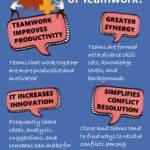
Troika Consulting to Give and Receive Help
With Troika Consulting you can help people gain insight on issues they face and unleash local wisdom for addressing them. In quick round-robin “consultations,” individuals ask for help and get advice immediately from two others.
Peer-to-peer coaching helps with discovering everyday solutions, revealing patterns, and refining prototypes. This is a simple and effective way to extend coaching support for individuals beyond formal reporting relationships.
Troika Consulting is always there for the asking for any individual who wishes to get help from colleagues or friends.
Four Structural Elements
1. Structuring Invitation
- Invite the group to explore the questions “What is your challenge?” and “What kind of help do you need?”
2. How Space Is Arranged and Materials Needed
- Any number of small groups of 3 chairs, knee-to-knee seating preferred.
3. How Participation Is Distributed
- In each round, one participant is the “client,” the others “consultants”
- Everyone has an equal opportunity to receive and give coaching
- Groups of 3
- People with diverse backgrounds and perspectives are most helpful
4. Sequence of Steps and Time Allocation
- Invite participants to reflect on the consulting question (the challenge and the help needed) they plan to ask when they are the clients. 1 min.
- Groups have first client share his or her question. 1-2 min.
- Consultants ask the client clarifying questions. 1-2 min.
- Client turns around with his or her back facing the consultants.
- Together, the consultants generate ideas, suggestions, coaching advice. 4-5 min.
- Client turns around and shares what was most valuable about the experience. 1-2 min.
- Groups switch to next person and repeat steps.
Purposes and Objectives
- Refine skills in asking for help
- Learn to formulate problems and challenges clearly
- Refine listening and consulting skills
- Develop ability to work across disciplines and functional silos
- Build trust within a group through mutual support
- Build capacity to self-organize
- Create conditions for unimagined solutions to emerge
Tips
- Suggest that participants critique themselves when they fall into traps (e.g., like jumping to conclusions)
- Have the participants try to notice the pattern of support offered. The ideal is to respectfully provoke by telling the client “what you see that you think they do not see”
- Tell participants to take risks while maintaining empathy
- Keep the spaces safe: if you share anything, do it judiciously
- Questions that spark self-understanding or self-correction may be more powerful than advice about what to do
- Tell clients to try and stay focused on self-reflection by asking, “What is happening here? How am I experiencing what is happening?”
- Make Troika Consulting routine in meetings
Examples
- For the beginning or end of staff meetings
- After a presentation, for giving participants time to formulate and sift next steps
- For students to help one another and to promote peer-to-peer learning
- In the midst of conferences and large-group meetings
- As a self-initiated practice within a group


